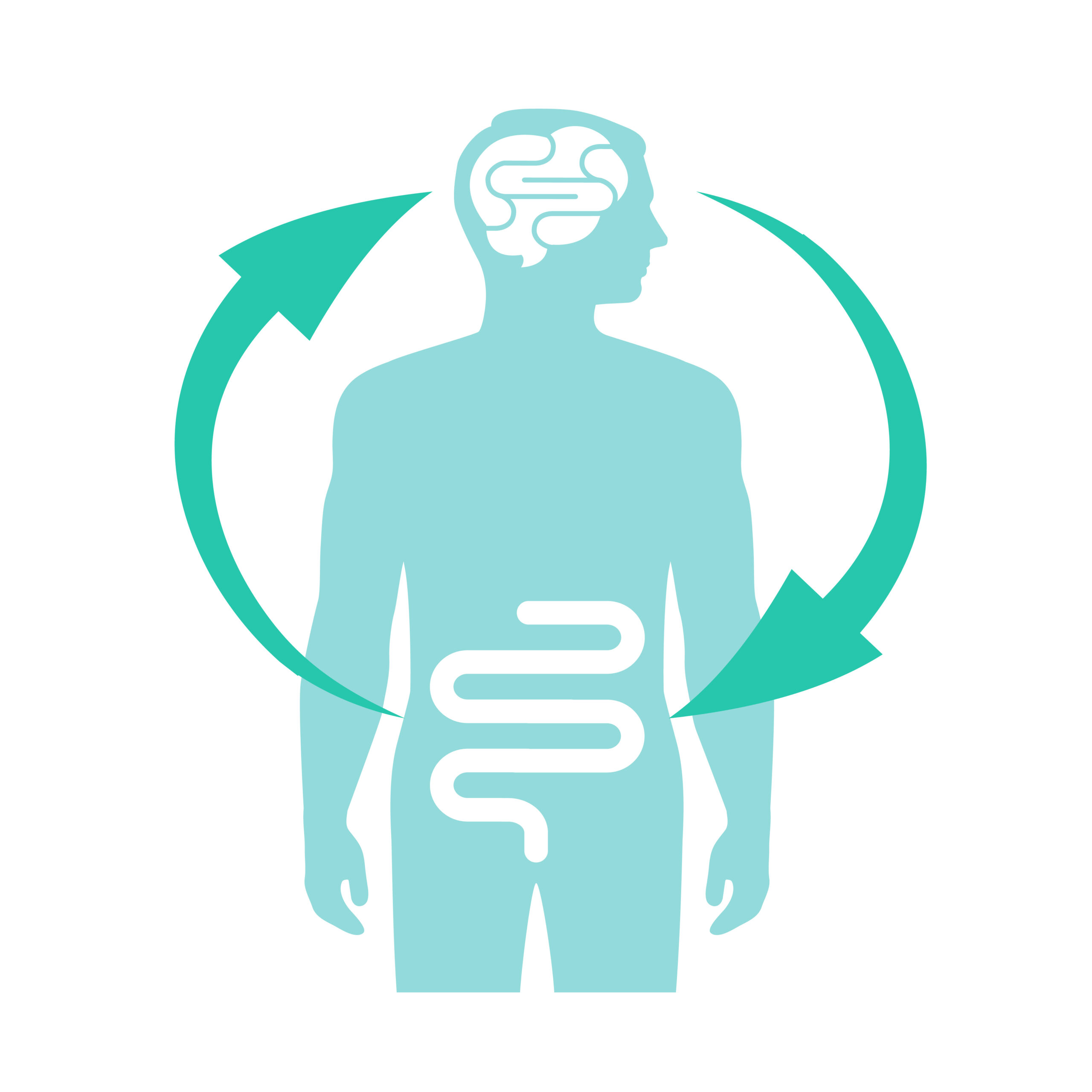
TOPICS
IBS and the Brain-Gut Connection

Irritable bowel syndrome (IBS) is a disorder that affects the large intestine. These symptoms commonly include acute abdominal pain, a change in bowel movements featuring either diarrhea, constipation, or both. IBS can be categorized based on bowel habits. For example, (IBS-C) is IBS with constipation, (IBS-D) is IBS with diarrhea, (IBS-M) is mixed IBS.) 1.
IBS can be persistent and may require long-term management. Unfortunately, no test can definitively diagnose IBS. Instead, your doctor will likely first give you a physical exam and try to rule out other conditions. Additional tests may be conducted, including a colonoscopy – an X-Ray or CT scan and an upper endoscopy. However, often no disease or infection is found in your gastrointestinal tract. So many people are left guessing about the cause of their symptoms after visiting the doctor.
There are many factors related to IBS, such as genetic disposition, diet, food intolerance, etc. However, often overlooked is the connection between IBS and mental health. Stress is a significant factor in IBS, and getting treatment to deal with mental health issues can go a long way toward coping with IBS symptoms.
Understanding the brain-gut axis of IBS is essential to comprehend why you are having symptoms. Your brain and central nervous system constantly contact your enteric (intestinal) nervous system, and symptoms may occur when your brain and gut don’t communicate correctly. 2. In other words, when either or both your brain and your gut aren’t functioning correctly, it can lead to IBS.
So, in general, we can say that IBS is both a physical health issue and a mental health issue in many cases. Treatment for IBS is most effective when you examine the physical and mental aspects of the problem.
Several mental conditions can affect IBS. Prominently among them is the role that stress plays. Anxiety and stress can come from a variety of sources. For example, many people who experience stressful events, especially in childhood, have a higher incidence of symptoms. In fact, there is a high correlation between IBS and people who suffer from PTSD, whether it be physical or sexual abuse or severe trauma. 3.
Furthermore, there is a high correlation between PD (panic disorder) and IBS. Some patients with IBS and anxiety disorders present abnormally elevated cortisol levels and altered immune function. 4.
Importantly IBS can be so debilitating that it can lead to agoraphobia, a type of anxiety disorder in which you fear and avoid places or situations that might cause you to panic and feel trapped, helpless, or embarrassed. Which can significantly alter your quality of life. 5.
So how do you deal with IBS? As we have mentioned, it is essential to see a doctor and determine if you have symptoms of IBS and what treatments are available.
Additionally, you should seek mental health therapy to address factors that may contribute to or even be causing the problem. Both CBT (Cognitive Behavioral Therapy) and psychiatric care can help you manage the symptoms and start down a path towards better maintenance and treatment for the condition.
A psychiatrist may determine that anti-anxiety medications are an appropriate option. Additionally, they may consider prescribing Tricyclic antidepressants, which can help relieve depression and inhibit the activity of neurons that control the intestines to help reduce pain. Another option is an SSRI antidepressant. (Selective serotonin reuptake inhibitor) which may help if you are depressed and have pain and constipation. 6.
While every person is different, a combination of testing, food and alcohol management, and supplements to improve your gut flora are all options. Consulting a physician and a psychiatrist is a way to see the problem from different perspectives. After all, your mind and your gut are connected!
References:
1) Longstreth GF, Thompson WG, Chey WD, Houghton LA, Mearin F, Spiller RC. Functional bowel disorders. Gastroenterology. 2006;130:1480–1491. doi: 10.1053/j.gastro.2005.11.061.
2) Mayer EA, Tillisch K. The brain-gut axis in abdominal pain syndromes. Annu Rev Med. 2011;62:381–936. doi: 10.1146/annurev-med-012309-103958
3) Early life stress. People exposed to stressful events, especially in childhood, tend to have more symptoms of IBS (https://www.niddk.nih.gov/health-information/digestive-diseases/irritable-bowel-syndrome)
5) Vogelzangs N, Beekman AT, de Jonge P, Penninx BW. Anxiety disorders and inflammation in a large adult cohort. Transl Psychiatry. 2013;3:e249. doi: 10.1038/tp.2013.27.
6) https://www.mayoclinic.org/diseases-conditions/irritable-bowel-syndrome/diagnosis-treatment/drc-20360064
トピックス一覧へ戻る

